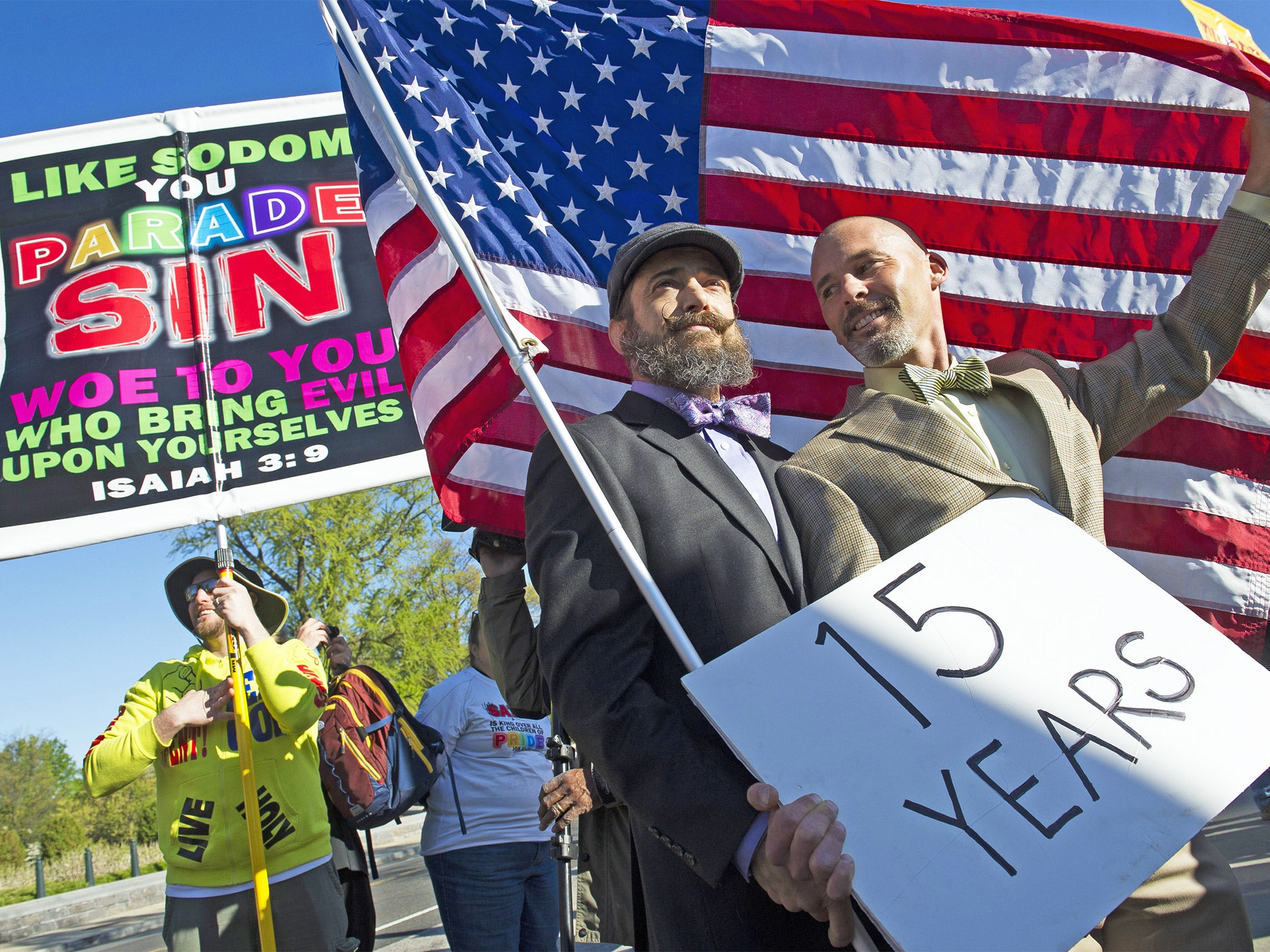US Supreme Court justices divided on case that could legalise same-sex marriage in all 50 states
Supporters fear a ban would result in chaos and leave many married gay couples in judicial limbo

With boisterous crowds outside, and rapt attention inside, the US Supreme Court has heard arguments in a case that may lead to a historic ruling making gay marriage legal in all 50 states of the Union.
In a session unusually extended to two and a half hours, the nine justices were considering two issues: whether state bans on same-sex marriage are constitutional, and, if they are, whether states that do have bans can refuse to recognise such marriages carried out in states that permit them.
The tone of the questioning was often sceptical, with several justices wondering whether it was up to the court, rather than voters, to pronounce on so fast-evolving a social issue.
The classic definition of marriage as between a man and woman “has been with us for millennia… and it’s very difficult for this court to say we know better,” said Justice Anthony Kennedy, who could prove the swing vote in the case.
In the spring sunshine outside the building, a crowd of over 1,000 had gathered, some of them there for days in the hope of securing tickets to attend the hearing. Gay marriage supporters brandished signs proclaiming “Love for all” and “America is ready for freedom to marry”. Opponents carried slogans describing gay marriage as sinful, with one declaring, “Satan rules over all the children of pride”.
As questions continued, it became clear that the three staunchest conservative justices were opposed, while the Court’s four liberals were in favour. Holding the balance were Justice Kennedy, usually a conservative but who previously has been sympathetic to gay rights, and Chief Justice John Roberts. Neither tipped their hands – though most courtwatchers expect the ultimate ruling, to be handed down in late June, to sanction gay marriage everywhere.
In a country where “culture wars” on issues from abortion, to guns and religion can seem eternal, gay marriage has been the exception. Even a decade ago, the issue was little talked about. Now such marriage has been made legal in 36 states and the District of Columbia, sometimes by state legislatures, more often by decisions of federal or state courts.
In 1996, only 27 per cent of Americans thought gay marriage should be legal. Today many states, in the South and the conservative heartland, still oppose the idea, but public opinion polls now suggest that more than 50 per cent of the population is in favour – among it, overwhelmingly, young people.
The arguments dealt with the consolidated cases of a dozen couples and widowers, from several states. Many of them are so-called “accidental activists” who have gone to the courts not to specifically press a cause, but in protest at the practical ways the bans effect their lives, on issues such as pensions, benefits and child custody.
Should the court decline to make same-sex marriage legal across the country, supporters say the result would be chaos, in which some overturned state bans would be automatically reinstated, and many married gay couples would find themselves in judicial limbo, with their current rights liable to disappear at a moment’s notice.
The Supreme Court last tackled gay marriage in 2013, when a majority, including Justice Kennedy, said that the Defence of Marriage Act passed by Congress in 1996, defining such unions as between a man and a woman, was unconstitutional.
Join our commenting forum
Join thought-provoking conversations, follow other Independent readers and see their replies
Comments